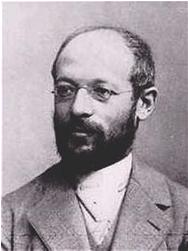A Quote by Ada Lovelace
A new, a vast, and a powerful language is developed for the future use of analysis, in which to wield its truths so that these may become of more speedy and accurate practical application for the purposes of mankind than the means hitherto in our possession have rendered possible.
Related Quotes
We have each chosen the circumstances of our births in order to carry out our soul's purposes. And these purposes can't always be known to our intellects. Nothing happens randomly. And at the same time, we have the ability to become far more powerful and happy and healthy than we ever dreamed possible. At any age.
Long intervals frequently elapse between the discovery of new principles in science and their practical application... Those intellectual qualifications, which give birth to new principles or to new methods, are of quite a different order from those which are necessary for their practical application.
The truths which are represented in England and Western countries generally, are those which refer to force of character, earnestness of purpose, conscientious strictness, noble charity, practical duty, whilst the truths which I find peculiarly developed in India - developed to a greater extent than anywhere else, - and in the Eastern countries generally, are those which have reference to sweetness of communion, sweetness of temper, meekness and resignation unto God.
Imagine discovering a continent so vast that it may have no end to its dimensions. Imagine a new world with more resources than all our future greed might exhaust, more opportunities than there will ever be entrepreneurs enough to exploit, and a peculiar kind of real estate that expands with development. Imagine a place where trespassers leave no footprints, where goods can be stolen infinite number of times and yet remain in the possession of their original owners, where business you never heard of can own the history of your personal affairs.
In a democracy, if people don't have accurate information, how can they be active citizens? How can they be part of the debate? And if you are facing powerful forces on the right and in Trump administration who want to create an alternative reality that feeds into their objectives for our country, you more than ever need the press to cut through that, and to be as accurate as possible.
The majority of the people of the world today are unsane, not insane, unsane meaning having been exposed to methods of evaluation that have long rendered obsolete, our language in the future will change to a saner language where we have no argument in it, 'can there be such a language?' there is, when engineers talk to each other, it's not subject to interpretation, they use math, they use descriptive systems, if I interpreted what another engineer said in the way I think he meant it: you couldn't build bridges, dams, power transmission lines. The language has to have meaning
Coming back to America was, for me, much more of a culture shock than going to India. The people in the Indian countryside don't use their intellect like we do, they use their intuition instead, and their intuition is far more developed than in the rest of the world. Intuition is a very powerful thing, more powerful than intellect in my opinion. That's had a big impact on my work.
Of what use is the universe? What is the practical application of a million galaxies? Yet just because it has no use, it has a use - which may sound like a paradox, but is not. What, for instance, is the use of playing music? If you play to make money, to outdo some other artist, to be a person of culture, or to improve your mind, you are not really playing - for your mind is not on the music. You don't swing. When you come to think of it, playing or listening to music is a pure luxury, an addiction, a waste of valuable time and money for nothing more than making elaborate patterns of sound.
Some feminist critics debate whether we take our meaning and sense of self from language and in that process become phallocentric ourselves, or if there is a use of language that is, or can be, feminine. Some, like myself, think that language is itself neither male nor female; it is creatively expansive enough to be of use to those who have the wit and art to wrest from it their own significance. Even the dread patriarchs have not found a way to 'own' language any more than they have found a way to 'own' earth (though many seem to believe that both are possible).
Gratitude, as it were, is the moral memory of mankind. In this respect, it differs from faithfulness by being more practical and impulsive: although it may remain, of course, something purely internal, it may yet engender new actions. It is an ideal bridge which the soul comes across again and again, so to speak, and which, upon provocations too slight to throw a new bridge to the other person, it uses to come closer to him.
There are also two kinds of truths, those of reasoning and those of fact. Truths of reasoning are necessary and their opposite is impossible, and those of fact are contingent and their opposite is possible. When a truth is necessary its reason can be found by analysis, resolving it into more simple ideas and truths until we reach those which are primitive.
A new race-neutral language was developed for appealing to old racist sentiments, a language accompanied by a political movement that succeeded in putting the vast majority of backs back in their place. Proponents of racial hierarchy found they could install a new racial caste system without violating the law or the new limits of acceptable political discourse, by demanding 'law and order' rather than 'segregation forever'.







































